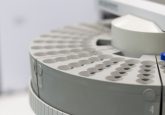Fatigue-related accidents could be prevented by urine test
A new urine test has been developed that can measure how fatigued an individual is. The test could be important in monitoring exhaustion in doctors, pilots, air traffic controllers and bus drivers and other professions where extreme tiredness could result in lives being lost.
The results reported in the journal Analytical Chemistry could help workers recognize when they need to take a break and potentially reduce fatigue-related mistakes.
It has long been known that the effects of fatigue are a problem in the transportation and healthcare industries. Published studies in the early 2000s linked thousands of vehicular crashes every year to fatigue-related mistakes; tiredness was also a major concern for patient safety.
The symptoms of weariness, which can cause people to lose motivation and focus and become drowsy, are associated with biochemical changes that are not well understood.
In order to determine whether a urine test could detect these changes, Zhenling Chen, Xianfa Xu and colleagues analyzed urine samples from dozens of air traffic controllers working in civil aviation before and after an 8-hour shift on the job.
The study identified three out of the thousands of metabolites detected that could serve as indicators of fatigue. Although the initial results represent a new way to investigate and monitor fatigue, further validation is required.
The results could potentially help prevent worn-out workers from making potentially dangerous errors in the future.
Sources: Chen Z, Xu X, Zhang J et al. Application of LC-MS-Based Global Metabolomic Profiling Methods to Human Mental Fatigue, Analytical Chemistry doi: 10.1021/acs.analchem.6b03421 (2016); http://phys.org/news/2016-11-urine-fatigue-accidents.html





